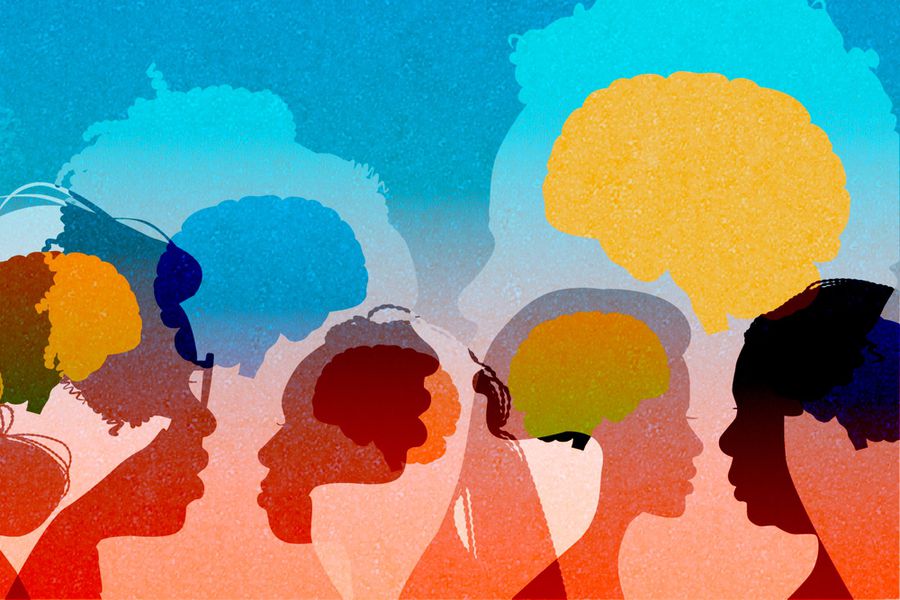
Recently, there's been a growing movement to better understand mental health as a culture and as individuals. Along with this is a push to reexamine thought patterns and behaviors previously considered atypical, "bad," or "less than" in some way simply because they skewed from what was considered the norm. This is where the term neurodivergent (or neurodiversity depending on the use case) comes into play — a word that may sound familiar to you.
How to Navigate Neurodiversity Respectfully
"Being neurodivergent doesn't mean that you have a disability," says Mandell. "We tend to think about people in terms of what is 'wrong' with them, but people who are neurodivergent simply engage and interact with the world differently."
If someone says they’re neurodivergent, then it’s typically okay to ask them if they’d be open to talking about it, but you should never make assumptions about their mental health or use of the label, notes Caudel. “If they’ve disclosed their neurodivergence, ask them questions about their perspective and what navigating life is like,” he says. “You have a golden opportunity to peer past the mask and see the real person inside.” This may help you to better understand how to communicate with them in the future. (See also: How to Be an Authentic and Useful Ally)
If you notice that someone who you know to be neurodivergent seems to be stressed or struggling to understand what you're trying to say, Mandell recommends offering your support. "It can be really helpful to ask, 'What's the best way for you to receive this information?' or 'What's the best circumstances for us to communicate?'" he explains.
And it's especially important to try to create a safe space for someone who is neurodivergent to be themselves. "They don't often show that person for fear of being rejected and excluded, but there are a lot of wonderful, talented people out there who are excluded because they're 'weird' or 'different,'" says Caudel. "The better you understand someone, the better you can communicate."






































